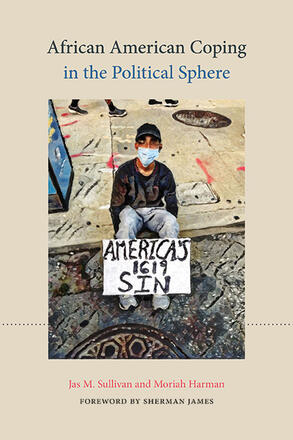
African American Coping in the Political Sphere
Alternative formats available from:
Explores the influence coping has had on African Americans' political attitudes and behaviors.
Description
Psychosocial stressors are a part of the human condition. Individuals experience a myriad of stressors in their everyday lives, and, while many people experience some of the same types of stressors, responses and reactions to stressful life events, interactions, and situations often vary. Research has shown that these stressors often have negative effects on physical and mental health outcomes, among others. Thus, the way one copes with psychosocial stressors is important for explaining human behavior and variations across and within certain groups. For African Americans, there are added stressors that impact daily functioning, due to no fault of their own. These stressors include, but are not limited to, discrimination, microaggressions, and police brutality, as well as income, health, and education inequalities. Inspired by the John Henryism hypothesis and, more broadly, the research on John Henryism, African American Coping in the Political Sphere explores the influence coping has on African Americans' political attitudes and behaviors. Jas M. Sullivan and Moriah Harman reveal that coping plays a role in political outcomes just as it does in social, economic, psychological, and health outcomes. Consequently, coping offers insight into why some individuals believe and behave in the ways that they do in the political sphere.
Jas M. Sullivan is Russell B. Long Professor of Political Science, Psychology, and African and African American Studies at Louisiana State University. He is the author (with Jonathan Winburn and William Cross) of Dimensions of Blackness: Racial Identity and Political Beliefs and author/editor (with William Cross, coeditor) of Meaning-Making, Internalized Racism, and African American Identity, both published by SUNY Press. Moriah Harman is Assistant Professor of Political Science at Texas Tech University.
Reviews
"This is an illuminating work about how collective history and personal fortitude can shape political actions." — CHOICE
"This is an important book. I agree wholeheartedly with the book's claim that the study of coping among African Americans is essential—particularly in the uniquely racially divisive context of the past few years. As a person who was trained in political psychology, there is much to appreciate about this book." — Ray Block Jr., coauthor of Losing Power: African Americans and Racial Polarization in Tennessee Politics